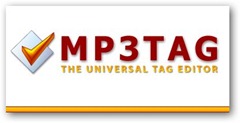Agile management, or agile process management, or simply agile refer to an iterative, incremental method of managing the design and build activities for engineering, information technology, and other business areas that aims to provide new product or service development in a highly flexible and interactive manner; an example is its application in Scrum, an original form of agile software development.[1] It requires capable individuals from the relevant business, openness to consistent customer input, and management openness to non-hierarchical forms of leadership. Agile can in fact be viewed as a broadening and generalization of the principles of the earlier successful array of Scrum concepts and techniques to more diverse business activities. Agile also traces its evolution to a “consensus event”, the publication of the “Agile manifesto“, and it has conceptual links to lean techniques, kanban (かんばん(看板)?), and the Six Sigma area of business ideas.[1]
Agile X techniques may also be called extreme process management. It is a variant of iterative life cycle[2] where deliverables are submitted in stages. The main difference between agile and iterative development is that agile methods complete small portions of the deliverables in each delivery cycle (iteration)[3] while iterative methods evolve the entire set of deliverables over time, completing them near the end of the project. Both iterative and agile methods were developed as a reaction to various obstacles that developed in more sequential forms of project organization. For example, as technology projects grow in complexity, end users tend to have difficulty defining the long term requirements without being able to view progressive prototypes. Projects that develop in iterations can constantly gather feedback to help refine those requirements. According to Jean-Loup Richet (Research Fellow at ESSEC Institute for Strategic Innovation & Services) “this approach can be leveraged effectively for non-software products and for project management in general, especially in areas of innovation and uncertainty. The end result is a product or project that best meets current customer needs and is delivered with minimal costs, waste, and time, enabling companies to achieve bottom line gains earlier than via traditional approaches.[4] Agile management also offers a simple framework promoting communication and reflection on past work amongst team members.[5]
Agile methods are mentioned in the Guide to the Project Management Body of Knowledge (PMBOK Guide) under the Project Lifecycle definition:
Adaptive project life cycle, a project life cycle, also known as change-driven or agile methods, that is intended to facilitate change and require a high degree of ongoing stakeholder involvement. Adaptive life cycles are also iterative and incremental, but differ in that iterations are very rapid (usually 2-4 weeks in length) and are fixed in time and resources.[6]

